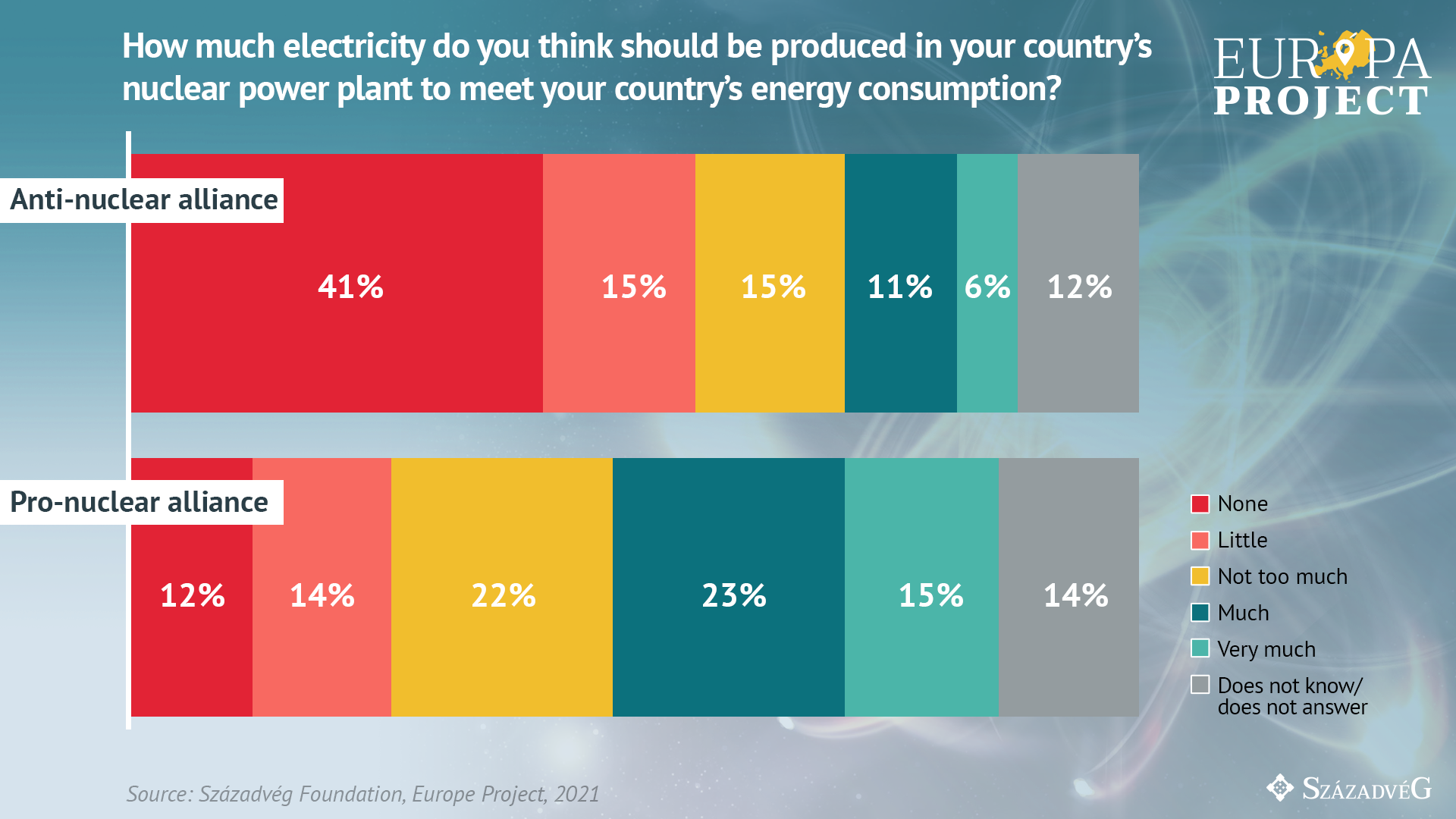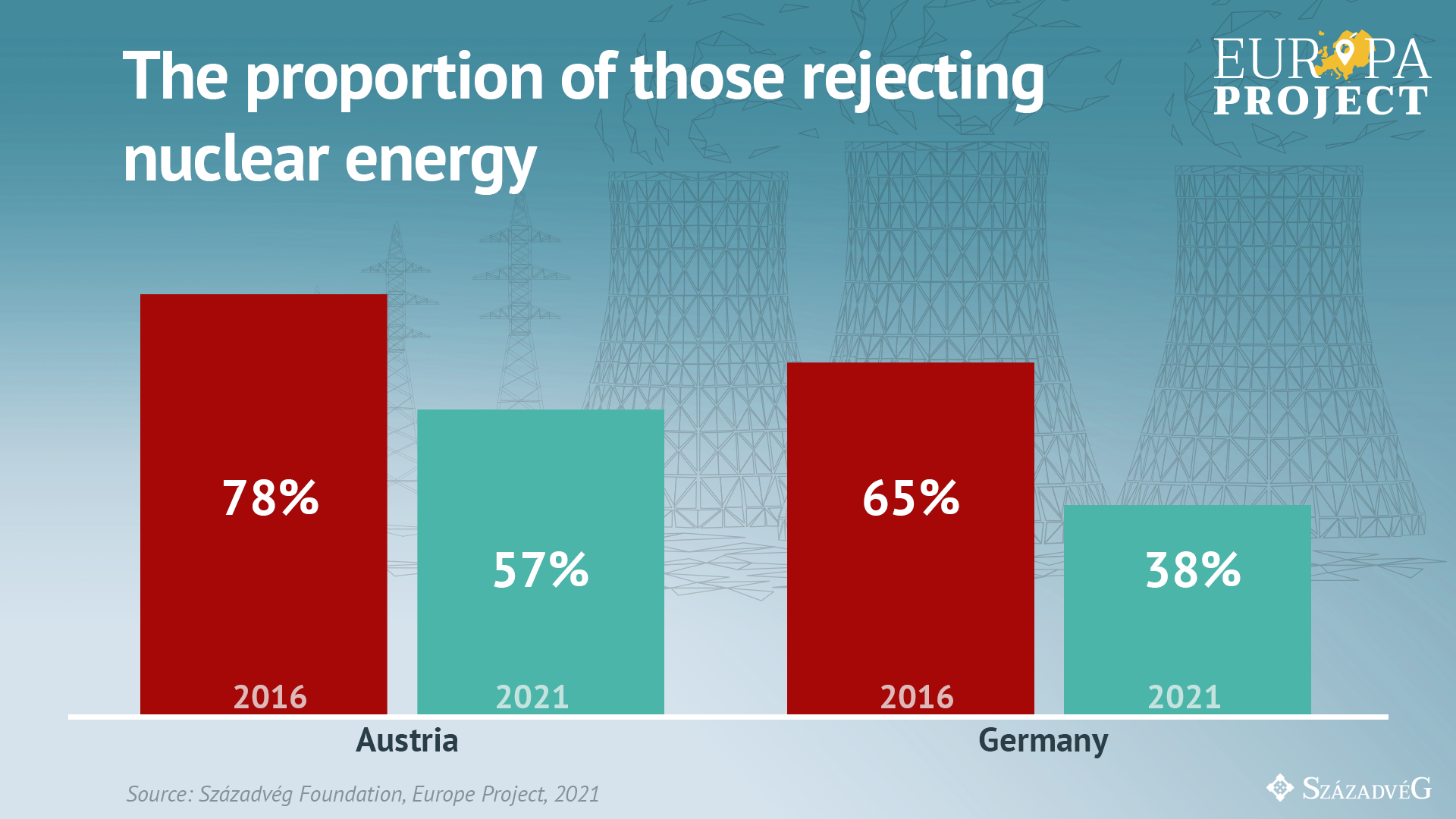In recent years, essentially, there have been no more technical arguments against nuclear power. The specific life cycle CO2 emissions of the technology fall into the same category as solar and wind energy, but its land use is much more favourable than that of those. According to statistics, nuclear power plants have resulted in fewer deaths than almost all other forms of energy production in recent decades, and the technology is becoming increasingly safe due to stricter regulations. Today, most major international organisations see it as an obvious fact that global (and especially ambitious European) climate protection goals cannot be achieved without new nuclear investments. Perhaps it is due to these arguments that the European Commission’s background institution would also classify nuclear energy as “environmentally sustainable”, i.e., it would classify nuclear energy into a fundable category. In addition, the President of the Commission, Ursula von der Leyen, has also recently expressed support for the technology.
Despite the technical arguments, the biggest conflict in the preparation of the European Union’s energy taxonomy regulation is the classification of nuclear energy. If the technology was to be considered sustainable by the Community, it would make the support for new nuclear investments possible. Although the new capacities would improve Europe’s security of supply and climate protection performance, parties that have pursued radical anti-nuclear policies and campaigned for dismantling nuclear capacity in recent years, citing climate protection, would lose credibility with a favourable classification. The political debate has divided Europe into two parts, and an anti-nuclear alliance including five countries (Austria, Denmark, Germany, Luxembourg, and Portugal), and a pro-nuclear one including ten countries (Bulgaria, the Czech Republic, Croatia, Finland, France, Hungary, Poland, Romania, Slovakia, and Slovenia) have been established in recent months.
According to the Europe Project 2021 research conducted by Századvég and the 2016 data collection of the European Social Survey (hereinafter: ESS), there has been a significant decrease in the rejection of nuclear energy among European citizens. The differences in public opinion are well represented by the countries of the two alliances: the technology is rejected most in the anti-nuclear Member States, while a high proportion of those living in pro-nuclear Member States consider the use of nuclear energy to be acceptable. The trend over the past five years has been favourable to the latter, as social support for the technology continues to rise even in the countries with the highest rejection. In addition, the research data collection was carried out between 1 August and 15 September 2021, so the responses reflect people’s opinion before the energy crises.
There has been a decrease in the rejection of nuclear energy in Europe
To measure the population’s attitude towards nuclear power plants, we asked the same question as the one included in the 2016 ESS survey, that is: How much electricity do you think should be produced in your country’s nuclear power plant to meet your country’s energy consumption? For the sake of clarity, the answers “does not know”, “does not answer”, and “I have not heard of such an energy source” are combined in the figure.
Based on the research results, over the last five years, the rejection of the technology has decreased significantly in all European countries surveyed; the EU average has fallen from 41 percent to 26 percent. Respondents in most countries are divided on how much electricity a country should produce in the nuclear power plants, but there is a positive shift in the proportion of each answer: the number of those who answered “little” has decreased, while the proportion of those who answered “very much” has doubled. Interestingly, the proportion of those who are vague has also increased compared to previous research: the proportion of responses in the “does not know” category rose from 6 percent to 9 percent.
The research results clearly show that the leaders of the European Union not only have the technical but also the social authority to classify nuclear energy as sustainable, thus enabling the financing of investments more efficiently.
The division between Member States is well explained by differences in public opinion
The primarily political nature of the debate on nuclear energy is well indicated by the fact that the division between the Member States is polarised according to social support. In pro-nuclear countries the rejection of nuclear power is the lowest: an average of 12 percent. In contrast, 41 percent of people in anti-nuclear Member States believe that no electricity should be produced by using nuclear energy.
Of the pro-nuclear countries, nuclear power is most supported by the Czechs, where the proportion of those who reject it is only 5 percent, and almost half of the respondents (49 percent) say the technology should produce very much or much electricity. Based on the research results, support for nuclear energy in the alliance is also very high in Bulgaria and Hungary: in these Member States, the overall proportion of the two favourable categories are 46 and 44 percent.
Although this technology is still highly rejected in anti-nuclear countries, the fact that there has been the largest decrease in people’s aversion in these countries over the past five years is an important warning to political leaders. While in Germany, two-thirds of respondents rejected nuclear energy in 2016, the rate has now dropped below 40 percent, i.e., a quarter of the population have changed their previous negative opinion. The most obvious explanation for this is that German citizens are increasingly experiencing the negative consequences of dismantling nuclear power plants. The trend is similar in Austria, which remains the country with the highest rejection in Europe, but the rate of 78 percent five years ago has fallen to 57 percent by 2021, i.e., more than one-fifth of Austrians have changed their negative opinion.
If the trends of recent years continue, following the technical arguments, the political legitimacy behind the European anti-nuclear parties will gradually disappear, so that they may be confronted with their own voters. In addition, European citizens can have a more direct experience of the negative consequences of the shutdown of nuclear power plants, which may further increase the support for the technology in the future.
In the first half of 2016, the Századvég Foundation conducted a public opinion poll survey covering all 28 European Union Member States, with the aim to analyse the opinions of EU citizens regarding the issues that most affect the future of the EU. In a unique way, Project28 conducted the widest possible survey of 1,000, that is a total of 28,000 randomly selected adults in each country. Gaining an understanding of society’s sense of prosperity and mapping the population’s attitudes towards the performance of the European Union, the migration crisis and the increasing terrorism were among the most important goals of the analysis. The Századvég Foundation, on behalf of the Hungarian Government, conducted the research again in 2017, 2018 and 2019, which continued to reflect on the topics that most determined the European political and social discourse.
In 2021, the aim of the survey is again to map the population’s attitude towards the most important public issues affecting our continent. In addition to society’s sense of prosperity, the performance of the European Union and the attitudes towards the migration crisis, in line with the latest challenges affecting Europe, the dominant theme of this year’s poll is the coronavirus pandemic, climate change, energy supply and family policy. In addition to the European Union Member States, the 2021 research covered the United Kingdom, Norway, and Switzerland, interviewing a total of 30,000 randomly selected adults using the CATI method between 1 and 15 September.



